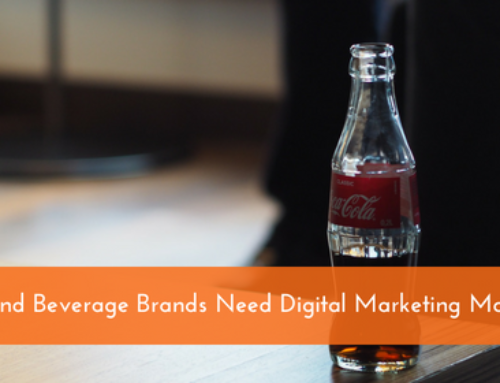By this point, we’re all aware of what a brand is, right? At least, when we consider giant companies like Coca-Cola, Apple, Nike, and McDonald’s, we know what a brand is. What about companies that don’t have the marketing budgets for celebrity endorsements and global television spots? How can those small-to medium-sized businesses develop a recognizable and respectable brand without the same resources?
The answer? You.
The Importance of Your Personal Brand
For your small to mid-size business, you really need a public face—someone people connect automatically with your company. That is the first step in strengthening your personal brand while creating your company’s brand. From the moment you imagine your company into existence, you might consider serving as the face, the image.
Even the largest brands have a face, don’t they? Sure, that face might be one of a celebrity, but the reasoning behind it is the same: People need to connect to brands. The pop singer or actor or model—they’re that connection between the buying public and the giant brand. If you focus on building your personal brand, you can also become that celebrity for your brand.
The CEO, owner, or president is often the face of the brand even if celebrity endorsers sign on. In fact, many companies rely solely on the guy or girl in charge to shape the image and brand. Consider Steve Jobs, who ultimately became just as famous as his own company, who served as that connection between people and product. That was a man with a personal brand.
Bill Gates, Lee Iacocca, and Warren Buffet all cultivated personal brands that drove their companies’ brands. These larger-than-life personalities have become their own celebrity endorsers and are synonymous with their business. Their fame, wisdom, and intelligence move consumers to buy.
Developing Your Personal Brand
You can harness that same power for your small to mid-size business. Just as branding businesses large and small relies on the same basic foundation, so does building a personal brand. Your first step is to align your personal vision with that of the company. The mission can be different, of course. You are your own person. Just be sure your personal mission and your company mission mesh well together. For instance, if you’ve started a company that sells children’s toys or clothing, you’ll want your personal mission or mantra to have some connection to children, whether through your own family or through organizations you work with.
Next, determine how you’ll appeal to your audience. Do you use humor to grow your brand, or are you always serious and business-oriented? Will you use logic to reach your potential buyers, or are you often more emotional? These rhetorical devices are exceptionally important when building a brand, whether for yourself or your company. You can apply one to your company, such as logic, while reaching out to buyers through emotional appeals with your personal brand.
Lastly, determine where you’ll fit in the overall brand of the company. The face of the company must also have a function. What service will you provide that might encourage followers to trust you? As we all know, Steve Jobs wasn’t just a businessman. He was heavily involved in the design of every product released during his tenure. Will you be that involved in the creation of your products, or will you simply serve as a figurehead?
Managing Your Brands
You should consider your personal brand from the very beginning and begin building your image immediately. With your own personal brand firmly intact, you can then manage the reputation and image of your company. If your company is already in full swing, it’s not too late. Just make sure your personal brand is consistent with the brand you’ve already established for your business. Remember that your actions will reflect upon your business as a whole, and that means you must always think and re-think about anything you put out there for public consumption.
Jeff Bezos, founder of Amazon, once said, “Your brand is what people say about you when you’re not in the room.” You must remember that this applies to your personal brand, too. You can’t afford a branding disaster on any level, but especially not the personal level. Businesses come and go, but your reputation is forever.
Have you created a personal brand that will stand the test of time? If you have questions about developing and maintaining your personal brand, don’t hesitate to reach out. Leave a comment or send an email to start the conversation.






